What are the different types of led par light?
- Illuminating the Stage: A Deep Dive into LED Par Lights
- Understanding the Essence of LED Par Lights
- Key Characteristics Defining LED Par Light Types
- LED Configuration and Power Output for Vibrant Lighting
- Beam Angle and Optics: Shaping the Light
- Housing and Ingress Protection (IP) Rating for Durability
- Control Protocols: Commanding Your Light Show
- Special Features for Enhanced Creativity
- Diving Deeper: Specific Types of LED Par Lights
- Standard RGB/RGBW LED Par Lights: The Versatile Workhorse
- COB LED Par Lights: Smooth Blending and High Output
- Outdoor/Weatherproof LED Par Lights: Built for the Elements
- Battery-Powered Wireless LED Par Lights: Freedom and Flexibility
- UV LED Par Lights: The Blacklight Effect
- Zoom LED Par Lights: Dynamic Beam Shaping
- RGBAW/RGBAW+UV LED Par Lights: Expanded Color Palettes
- Choosing the Right LED Par Light for Your Needs
- LQE's Commitment to Quality and Innovation in LED Stage Lighting
- Conclusion: The Versatility of LED Par Lights Unveiled
- Frequently Asked Questions
Illuminating the Stage: A Deep Dive into LED Par Lights
Welcome to the dynamic world of stage lighting, where innovation consistently pushes the boundaries of visual spectacle. At the heart of many breathtaking light shows and meticulously crafted environments lies the versatile and indispensable LED par light. From intimate theatrical productions to sprawling music festivals, these compact yet powerful fixtures are the unsung heroes, shaping moods, highlighting performances, and adding vibrant splashes of color. If you've ever wondered about the differences between these essential luminaires, or how to choose the right LED par light for your specific needs, you've come to the right place.
At LQE, a professional OEM/ODM stage lighting equipment manufacturer with over a decade of experience, we understand the nuances of stage illumination. Our mission, rooted in Foshan, China, since 2008, is to provide first-class modern stage lighting equipment that helps designers and producers realize their vision. With 80 national patents and an annual production capacity of 100,000 fixtures, we are committed to being the world's leading manufacturer of LED stage lighting. In this comprehensive guide, we'll unravel the different types of LED par light, exploring their features, applications, and what makes each one unique, ensuring you make informed choices for your next event.
Understanding the Essence of LED Par Lights
The LED par light, an abbreviation for Parabolic Aluminized Reflector light, has evolved significantly from its incandescent predecessors. Originally, PAR cans housed sealed-beam incandescent lamps, known for their powerful, punchy beams. The advent of LED technology revolutionized this classic fixture, transforming it into an energy-efficient, color-mixing powerhouse that has become a staple in virtually every sector of the entertainment industry.
Modern LED par lights leverage light-emitting diodes to produce light, offering unparalleled advantages over traditional lamps. These include significantly reduced power consumption, vastly extended lifespan (often tens of thousands of hours), and the ability to mix millions of colors without external color filters. This inherent versatility makes LED par lights ideal for everything from general wash lighting to intricate accentuation, ensuring they remain a top choice for professionals seeking reliable, high-performance stage LED par lights.
Key Characteristics Defining LED Par Light Types
While all LED par lights share the fundamental principle of using LEDs, their distinct features and functionalities lead to various types. Understanding these core characteristics is crucial when considering which LED par light best suits your event lighting or theatrical lighting needs. LQE offers a diverse range, and recognizing these elements will help you buy LED par light with confidence.
LED Configuration and Power Output for Vibrant Lighting
The type and number of LEDs within a par light significantly determine its output and color capabilities. Basic LED par lights might use single-color LEDs (e.g., all red, green, or blue), while more advanced models incorporate multiple colors in each LED or cluster of LEDs. The most common configurations include:
- RGB (Red, Green, Blue): Allows for a broad spectrum of colors by mixing the primary colors.
- RGBW (Red, Green, Blue, White): Adds a white LED for brighter whites and a wider palette, including pastels.
- RGBA (Red, Green, Blue, Amber): Incorporates amber for warmer tones and richer, more natural oranges and yellows.
- RGBWA (Red, Green, Blue, White, Amber): Combines the benefits of both RGBW and RGBA for superior color rendition and warm whites.
- RGBWA+UV (Red, Green, Blue, White, Amber, Ultraviolet): Adds UV LEDs for blacklight effects, making certain materials glow.
Power output, measured in watts, also varies. Higher wattage LED par lights (e.g., 3W, 5W, 10W per LED, or powerful COB configurations) offer greater intensity, suitable for larger venues or brighter wash effects. LQE's range includes high-output professional LED par lights designed for demanding applications.
Beam Angle and Optics: Shaping the Light
The beam angle dictates how wide or narrow the light spread will be. A narrow beam (e.g., 10-25 degrees) creates a more focused, intense spotlight effect, ideal for highlighting specific objects or performers. A wider beam (e.g., 40-60 degrees or more) provides a softer, broader wash of light, perfect for illuminating entire areas or creating ambient backgrounds. The type of lens (e.g., Fresnel, PC lens) also influences the light's quality, from soft edges to crisp, defined beams. Zoom capabilities in some LED par lights allow for variable beam angles, offering greater flexibility.
Housing and Ingress Protection (IP) Rating for Durability
The physical housing and IP (Ingress Protection) rating are critical, especially when considering the environment where the light will be used. Most LED par lights are designed for indoor use (typically IP20 rated), suitable for theaters, clubs, and studios. However, outdoor LED par lights feature robust, weather-resistant housings and higher IP ratings (e.g., IP65, IP67), protecting them from dust, rain, and other environmental elements. This ensures their reliability in festivals, architectural illumination, and other outdoor event lighting scenarios. Choosing the correct IP rating is paramount for longevity and safety.
Control Protocols: Commanding Your Light Show
Flexibility in control is a hallmark of modern LED par lights. The industry standard is DMX512, which allows precise control over color, intensity, strobe, and other parameters via a lighting console. Many LED par lights also offer built-in programs, sound-active modes, and master/slave capabilities for simpler setups. Wireless LED par lights often integrate wireless DMX, simplifying cabling and setup, particularly for temporary installations or remote placement. LQE's advanced stage lighting equipment incorporates cutting-edge control options for seamless integration.
Special Features for Enhanced Creativity
Beyond basic illumination, many LED par lights include special features that expand their creative potential. These can include:
- Zoom Functionality: As mentioned, adjustable beam angles for versatile applications.
- Strobe Effects: Rapid flashing for dynamic visual impact.
- Dimming Curves: Smooth, consistent dimming from 0-100%, often mimicking the fade characteristics of incandescent lights.
- Battery Power: For portability and quick setup without the need for power cables.
- Fanless Operation: Quieter operation, ideal for noise-sensitive environments like broadcast studios or quiet theaters.
Diving Deeper: Specific Types of LED Par Lights
With a clear understanding of the defining characteristics, let's explore the specific categories of LED par lights you'll encounter in the market, each serving distinct purposes and excelling in particular applications. LQE designs and manufactures many of these types, ensuring robust and high-performing solutions.
Standard RGB/RGBW LED Par Lights: The Versatile Workhorse
These are arguably the most common and widely used LED par lights. Featuring combinations of Red, Green, Blue, and sometimes White LEDs, they offer extensive color mixing capabilities. They are perfect for general wash lighting, uplighting architectural features, creating ambiance, or adding a backdrop of color to any stage. Their versatility and relatively compact size make them a go-to choice for DJs, bands, small venues, and corporate events. They are generally indoor-rated (IP20) and are an excellent entry point for those looking to buy LED par light for general purposes.
COB LED Par Lights: Smooth Blending and High Output
COB (Chip-on-Board) technology packages multiple small LED chips together to form a single, powerful light source. This results in an incredibly uniform and smooth beam, eliminating the multi-shadow effect sometimes seen with individual LEDs. COB LED par lights are known for their high luminous efficiency, excellent color mixing, and superior dimming capabilities, often achieving very smooth fades down to zero. They are particularly favored in television studios, theaters, and exhibition spaces where color consistency, high output, and flicker-free operation are paramount for broadcast and high-quality production. LQE's professional LED par lights include advanced COB solutions.
Outdoor/Weatherproof LED Par Lights: Built for the Elements
When event lighting moves outdoors, durability and weather resistance become non-negotiable. Outdoor LED par lights are specifically engineered with robust, sealed housings and high IP ratings (typically IP65, IP67, or even IP68) to protect internal components from dust, dirt, moisture, and even direct jets of water. These outdoor LED par lights are essential for festivals, open-air concerts, architectural facade lighting, garden illumination, and any temporary or permanent outdoor stage lighting installation where exposure to the elements is a factor. They represent a significant investment but offer unparalleled reliability in challenging environments.
Battery-Powered Wireless LED Par Lights: Freedom and Flexibility
One of the most innovative advancements in LED par light technology is the integration of rechargeable batteries and wireless DMX control. Battery-powered LED par lights liberate designers from the constraints of power cables, allowing for rapid deployment and placement in locations that would be difficult or impossible to cable. Coupled with wireless DMX, setup and teardown times are dramatically reduced. These wireless LED par lights are incredibly popular for weddings, corporate galas, mobile DJ setups, and any event requiring quick, clean, and flexible lighting solutions without unsightly cables. LQE offers a range of portable and reliable wireless LED par lights to meet these demands.
UV LED Par Lights: The Blacklight Effect
UV LED par lights are designed to emit ultraviolet light, creating the iconic blacklight effect where white and fluorescent materials glow brightly in the dark. While many RGBW or RGBWA+UV fixtures include a UV component, dedicated UV LED par lights offer a more powerful and focused UV output. They are indispensable for themed parties, Halloween events, escape rooms, or any venue looking to create a mysterious and vibrant glowing atmosphere. They transform ordinary spaces into extraordinary visual experiences.
Zoom LED Par Lights: Dynamic Beam Shaping
For designers who need dynamic control over their light beams, zoom LED par lights are an invaluable tool. These fixtures allow the user to remotely adjust the beam angle, transitioning from a narrow, focused spot to a wide, expansive wash with a single command. This flexibility is highly advantageous in theatrical productions, concert stages, and multi-purpose venues where different looks are required throughout an event or performance. Instead of needing multiple fixed-beam fixtures, a single zoom LED par light can perform several roles, enhancing creative possibilities and efficiency.
RGBAW/RGBAW+UV LED Par Lights: Expanded Color Palettes
These advanced LED par lights build upon the standard RGB by adding Amber (A), White (W), and/or Ultraviolet (UV) LEDs. The addition of Amber allows for richer, warmer yellows, oranges, and more natural amber tones, crucial for replicating tungsten light or creating warm, inviting environments. The dedicated White LED provides brighter, purer whites than mixed RGB, and the UV enhances blacklight effects. This expanded color palette makes RGBAW and RGBAW+UV LED par lights ideal for high-end theatrical applications, broadcast studios, and any scenario where precise, high-fidelity color mixing and nuanced lighting effects are essential. They represent the pinnacle of professional LED par light technology for color rendering.
Choosing the Right LED Par Light for Your Needs
Selecting the perfect LED par light from the array of available options can seem daunting, but by considering a few key factors, you can narrow down your choices effectively. LQE, as your trusted stage lighting equipment manufacturer, is here to guide you through the decision-making process for buy LED par light.
- Application and Venue: Where will the light be used? A large outdoor stage requires
outdoor LED par lightswith high IP ratings and significant output. A small theater might prioritizeCOB LED par lightsfor smooth dimming and quiet operation. A mobile DJ needsbattery-powered LED par lightsfor quick setup. - Desired Effects: Do you need a broad wash, a tight spotlight, uplighting, or special effects like UV glow? Your answer will guide your choice of beam angle, LED configuration (RGBW, RGBAW+UV), and special features.
- Color Requirements: Is basic color mixing sufficient, or do you need nuanced pastels, warm whites, or specific theatrical colors? This will determine if RGB, RGBW, or an expanded RGBAW/RGBAW+UV palette is necessary.
- Control and Connectivity: Do you have a DMX console, or do you need simpler stand-alone modes? Is wireless operation a must for convenience? Consider
wireless LED par lightsfor flexible setups. - Budget:
LED par lightsvary widely in price depending on features, power, and durability. Determine your budget but remember that investing in quality can lead to greater longevity and performance, minimizing long-term costs. - Reliability and Support: Choose a reputable manufacturer like LQE, known for high-quality, long-lasting
stage lighting equipmentand exceptional customer service. We pride ourselves on delivering value and cost-effectiveness without compromising on performance.
LQE's Commitment to Quality and Innovation in LED Stage Lighting
Since our founding in 2008 in Foshan, China, LQE has been dedicated to advancing the field of LED stage lighting. As a professional OEM/ODM stage lighting equipment manufacturer, we specialize in the R&D, production, and sales of middle- and high-end digital stage lighting. Our sprawling 10,000-square-meter production base, capable of producing 100,000 lighting fixtures annually, is a testament to our scale and commitment. Our portfolio, enriched by 80 national patents, includes a diverse range of moving head lights and static lights, perfectly suited for theaters, music concert stages, studios, broadcasting, religious spaces, exhibitions, nightclubs, leisure venues, and theme parks.
We don't just sell lights; we provide solutions that empower stage designers and producers to bring their most ambitious visions to life. Our unwavering commitment to providing first-class modern stage lighting equipment is matched only by our dedication to exceptional customer service, all while maintaining the best value and cost-effectiveness in the industry. Our goal is to deliver high-quality, long-lasting lighting solutions, and our vision is clear: to become the world's leading manufacturer of LED stage lighting, driving innovation one LED par light at a time.
Conclusion: The Versatility of LED Par Lights Unveiled
The world of LED par lights is incredibly diverse, offering a solution for nearly every conceivable lighting need across a multitude of applications. From the foundational RGB LED par light that paints a stage with vibrant hues, to the sophisticated COB LED par light providing seamless blending for broadcast, to the robust outdoor LED par light defying the elements, and the liberating wireless LED par light simplifying event setups – each type brings unique strengths to the table. Understanding these distinctions is key to unlocking their full potential and achieving your desired lighting effects.
As technology continues to evolve, LED par lights will undoubtedly become even more powerful, efficient, and versatile, further cementing their status as an indispensable tool for stage lighting. Whether you're a seasoned lighting professional or just beginning to explore the possibilities of event lighting, we hope this guide has illuminated your path. For your next professional LED par light purchase, or to explore our extensive range of high-quality stage lighting equipment, consider LQE – where innovation meets reliability and vision becomes reality.
Frequently Asked Questions
Q: What is the main advantage of LED par lights over traditional par cans?LED par lights offer significant advantages including vastly lower power consumption (up to 80-90% less), much longer lifespan (50,000-100,000 hours vs. a few hundred), extensive color mixing capabilities without external gels, lower heat output, and often greater control flexibility (DMX, wireless).
Q: How do IP ratings affect LED par light selection?IP (Ingress Protection) ratings indicate a fixture's resistance to dust and moisture. An IP20 rating is standard for indoor use. For outdoor applications or environments with high dust/humidity, you need higher ratings like IP65 (dust-tight, protected against water jets) or IP67 (dust-tight, protected against temporary immersion) to ensure the light functions reliably and safely.
Q: Can LED par lights be used for theatrical productions?Absolutely! LED par lights, especially COB LED par lights or RGBAW/RGBAW+UV LED par lights with smooth dimming curves and excellent color rendering, are widely used in theatrical productions for wash lighting, mood setting, and accentuation. Their silent operation (especially fanless models) is also a significant benefit in quiet theater environments.
Q: What is DMX512 and why is it important for LED par lights?DMX512 is the industry-standard digital communication protocol used to control stage lighting and effects. It's crucial for LED par lights because it allows lighting designers to precisely control individual attributes like color, intensity, strobe, and programs from a central lighting console, enabling complex and synchronized light shows. Wireless LED par lights often integrate wireless DMX for added convenience.
Q: How long do LED par lights typically last?High-quality LED par lights typically have a lifespan of 50,000 to 100,000 hours of operation. This is significantly longer than traditional incandescent lamps, drastically reducing the need for lamp replacements and maintenance costs.
Q: What does COB mean in LED par lights?COB stands for Chip-on-Board. In COB LED par lights, multiple small LED chips are packaged directly onto a single substrate, creating one large, powerful light-emitting surface. This technology provides extremely even light distribution, superior color mixing, and eliminates the multiple shadows often associated with discrete LED arrays, making them ideal for applications requiring smooth and uniform lighting.
Everything You Need to Know About wash light moving head
The latest trends for vintage fresnel light | LQE Ultimate Insights
How to Choose the bee eye led light manufacturer and supplier ?
What are the different types of led spot light for stage?
Distributor
Can LQE help with product training and technical guidance?
Absolutely. We offer remote training sessions, user manuals, installation guides, and continuous technical support to help your team understand and sell our products with confidence.
What types of companies can become LQE distributors?
We welcome partnerships with companies that have experience in the entertainment, AV, lighting, or stage equipment industries. Whether you are a local reseller, importer, system integrator, or project contractor, we are open to exploring win-win cooperation.
Is there a minimum order quantity (MOQ) to become a distributor?
MOQ requirements vary based on the product line and market region. However, for long-term distribution partnerships, we are flexible and can start with a trial order to build trust.
1000w
Does LQE Offer a Stage Light Design Solution?
LQE experienced team glad to supply a stage lighting configuration design solution or suggestion for projector who don’t have much experience in lighting design, project, theatre and studio.
Does LQE Offer Customized Stage Moving Light Solution?
An experienced R&D team can provide customized digital stage lighting OEM/ODM solution service to meet clients’ unique demands from global markets, such as customized CRI parameter, Ingress protection rating, effect, etc.
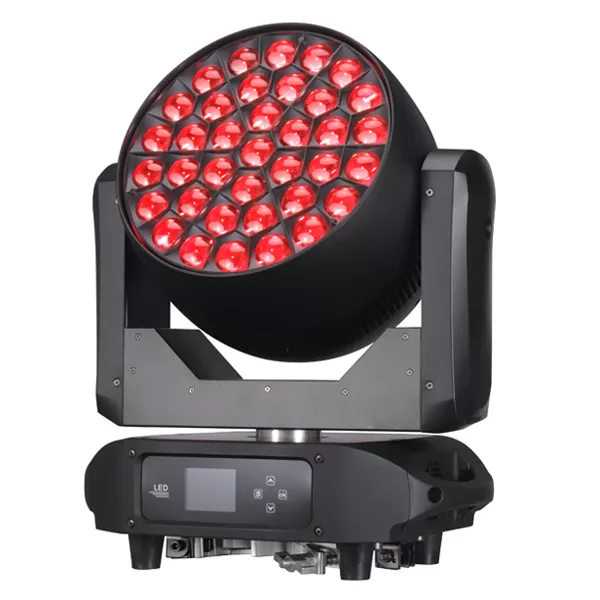
800w 37x40w RGBW Stage Moving Head Wash Light LW800
800W 37x40W LED RGBW Mulichips Moving Head Wash Lights with Zoom (5°-50°), Covering Large Range and Long Distance. Designed to deliver a 5°–50° ultra-large zoom range to achieve a greater wash effect, illuminating stages and events with stunning ring control lighting effects.
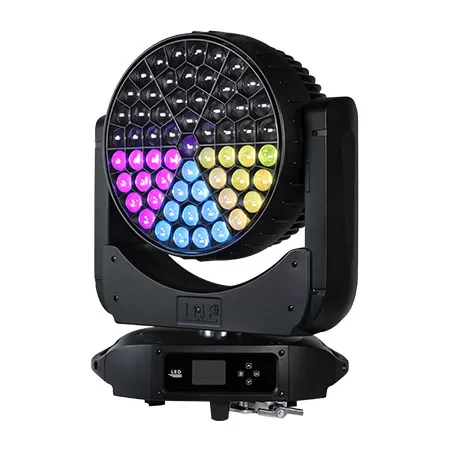
1000w 61x40w RGBW Stage Moving Head Wash Light LW1000
1000W 61x40W LED RGBW Mulichips Moving Head Wash Lights with Zoom (5°–50°), Covering Large Range and Long Distance. Designed to deliver a 5°–50° ultra-large zoom range to achieve a greater wash effect, illuminating stages and events with stunning lighting effects.
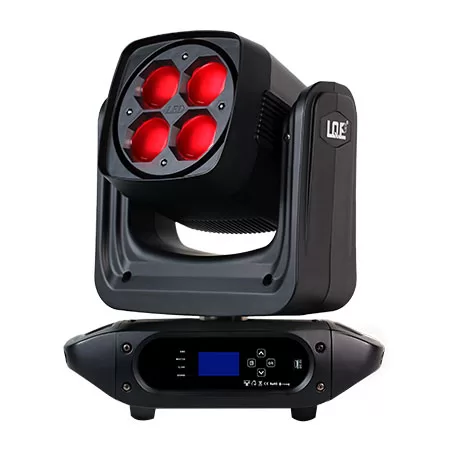
LED Moving Head Stage Wash Light LW200Z
The versatile moving head stage light provides a powerful lighting solution for theaters, concerts, and large outdoor performances. Suitable for theaters, TV stations, entertainment stages, and large outdoor performance scenes.
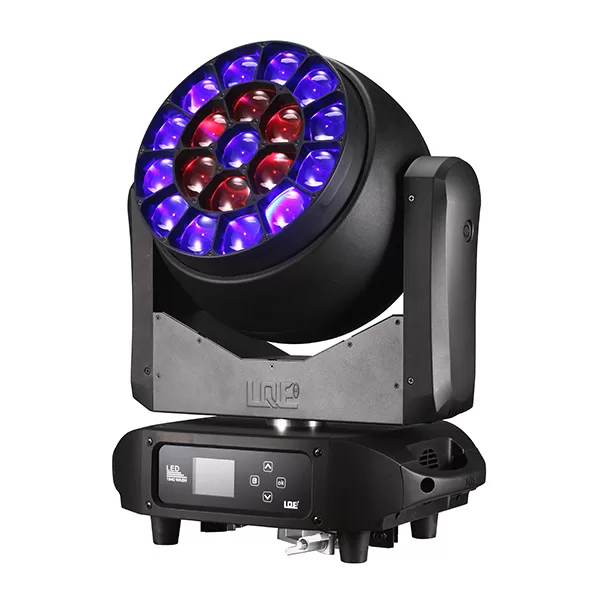
600w 19x40w RGBW Stage Moving Head Wash Light LW600 Zoom IP20
600W 19x40W LED RGBW Mulichips Moving Head Wash Lights with Zoom (5°–50°), Covering Large Range and Long Distance. IP20: Designed to deliver a 5°–50° ultra-large zoom range to achieve a greater wash effect, illuminating stages and events with stunning ring control lighting effects.

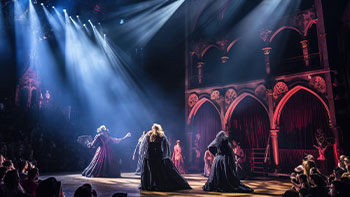
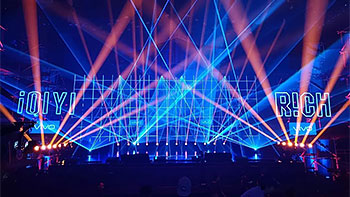
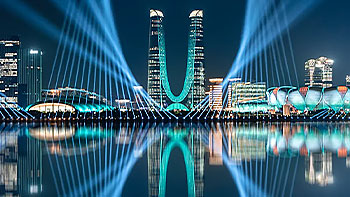
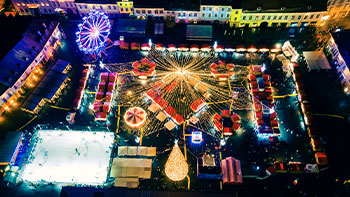
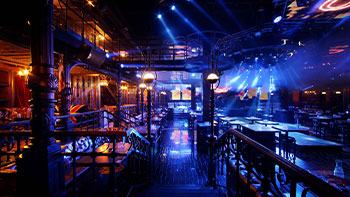
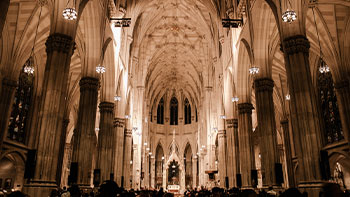






Linkedin
YouTube
Whatsapp: +8618924548390
TikTok